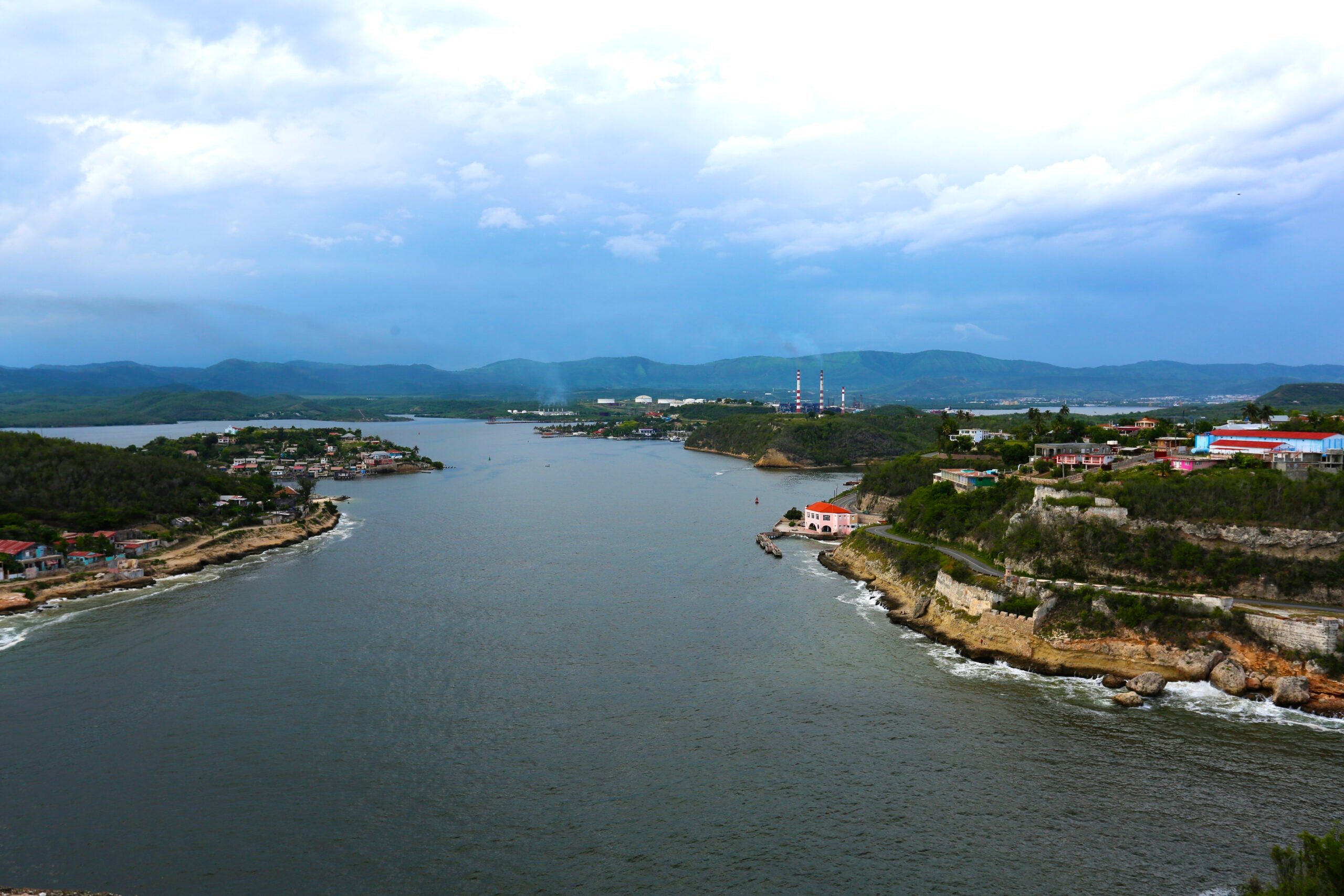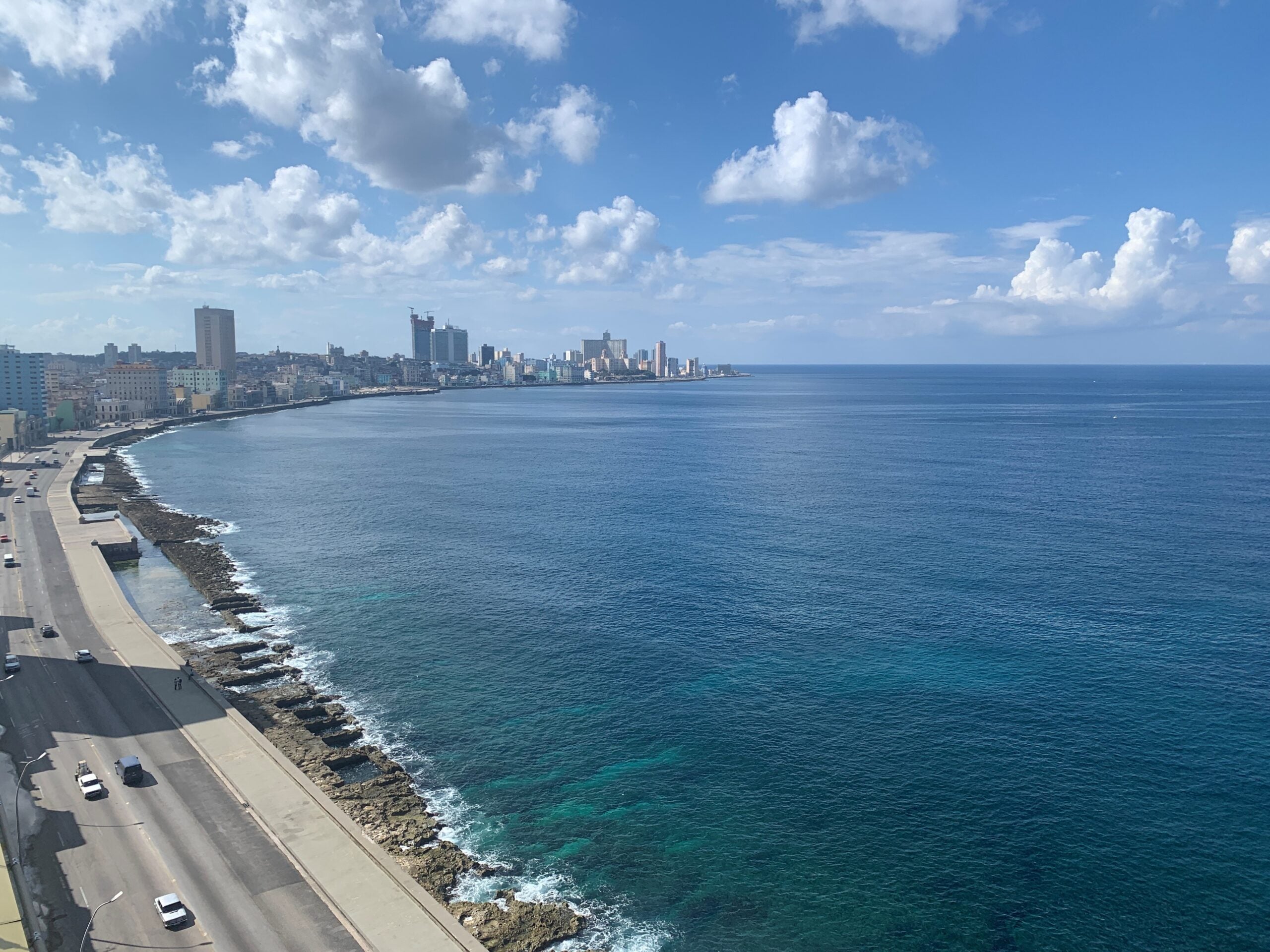The sun beats hot past colonial facades and newly minted hotels in Old Havana, onto the children playing soccer across Paseo del Prado. High tides splash over the tidal wall and the taxi driver notes, over the noise of the street, that dark storm clouds line the horizon and are threatening heavy rains. Like other coastal and island regions, communities in Cuba are experiencing the disproportionate effects of climate change.
Since 2016, Environmental Defense Fund, the Antonio Núñez Jiménez Foundation for Nature and Humankind and the Caribbean Agroecology Institute have partnered with local communities and organizations from Cuba as a part of the Research Initiative for the Sustainable Development of Cuba (RISDoC). RISDoC is a coalition of academics, civil society associations and representatives from international agencies who have come together to exchange innovative strategies and share lessons learned to prepare for climate impacts and spur sustainable economic growth. In addition to bringing together a range of Cuban community members, government officials and researchers, RISDoC connects experts from other regions with Cuba. This includes partners in Puerto Rico and Louisiana, regions that are experiencing more frequent and severe storms due to climate change and are working to build resilience.
Thanks to this important initiative, RISDoC participants are building a more resilient future in Cuba. Check out a few of their key priorities:
1. Focus on programs that support and work with communities in the wake of natural disasters
As Cuba faces rising sea-levels and increasingly frequent and severe storms, it’s essential that a diversity of individuals and groups address the needs of communities. Cuba has a long history of storm preparedness and response that has majorly reduced loss of life during weather events. Facing similar threats, the City of New Orleans has recently worked with community-led groups to establish resilience hubs that provide services to vulnerable residents during storms.
Resilience hubs provide residents with municipal buildings equipped with air conditioning, community resources and information, along with food, energy and emergency housing during storms. This model provided New Orleans communities crucial resources during Hurricane Ida in 2021, and the city is improving staffing and accessibility to help more people in the future. The city further extends its reach by working with community groups, including the Community Lighthouse Project, a network of solar-powered resilience centers in local churches and community centers.
Because Cuba faces similar natural disasters and infrastructure challenges to New Orleans and other coastal regions, there is ripe opportunity to share research and methods of implementation of local programs between the regions to build community resilience. EDF partners from Cuba and New Orleans are eager to explore these possibilities moving forward.
2. Improve coastal food systems that can adapt to climate impacts
Across the Caribbean, there is an urgent need to improve food systems due to increasing climate impacts.
Hurricanes ravage coastal agricultural production, especially in areas left unprotected by natural barriers such as mangroves and coral reefs due to habitat loss and destruction. Droughts and decreasing fish stock productivity pose additional risks to food production and jobs.
One solution that communities in Cuba and across the Caribbean are pioneering is the implementation of agroecological systems that diversify crops and require less water so farms are more resilient to extreme weather. Additionally, local entrepreneurs are using aquaculture and aquaponics to raise fish and grow fruits and vegetables, resulting in innovative methods to increase efficiency of food production. Efforts towards expanding these agroecological practices are ongoing in Cuba and Puerto Rico, and the focus of developing projects across RISDoC partner organizations.
3. Prioritize resilient and sustainable energy solutions in coastal regions
RISDoC participants from Cuba, New Orleans and Puerto Rico are advocating for solutions to transition to renewable-energy-based or net carbon neutral systems that will improve access to consistent, renewable energy resources and be more resilient to storms.
Cuba’s energy grid currently relies on fossil fuels and has become less effective due to age and hurricane-inflicted damage. There are now numerous possibilities to implement new, renewable and resilient energy systems, and projects in Puerto Rico and New Orleans provide small scale models of such development.
City leaders in New Orleans are working on solar energy and storage projects, as well as a microgrid to support a local community center. EDF’s team in Puerto Rico has similarly facilitated a community-led solar energy and storage project which has the capacity to provide essential energy during and after power outages caused by storms and a faulty centralized grid.
4. Implement new initiatives and climate-resilient collaborations moving forward
Building off the connections made at RISDoC, EDF is planning an upcoming knowledge exchange in New Orleans in 2024. This workshop will bring in representatives from Cuba and Puerto Rico to discuss community coastal resilience and showcase the coastal habitat, energy and climate-resilience projects within Louisiana.
Moving Forward
Each hurricane season it is hard not to worry about the forecasts and weather patterns in the Caribbean, but luckily, we have reassurance that several places across the region, including Cuba, Puerto Rico and New Orleans, are moving toward improved coastal resilience. With the help of EDF and counterparts, partners across the Caribbean and coastal regions are coming together to collaboratively address challenges facing coastal communities.
*Note: The organizing body of the Research Initiative for the Sustainable Development of Cuba (RISDoC) includes the Caribbean Chair of the University of Havana, the Antonio Núñez Jiménez Foundation of Nature and Humankind, the United Nations Development Programme, the Center for Cuban Economy Studies, Environmental Defense Fund and the Caribbean Agroecology Institute.

